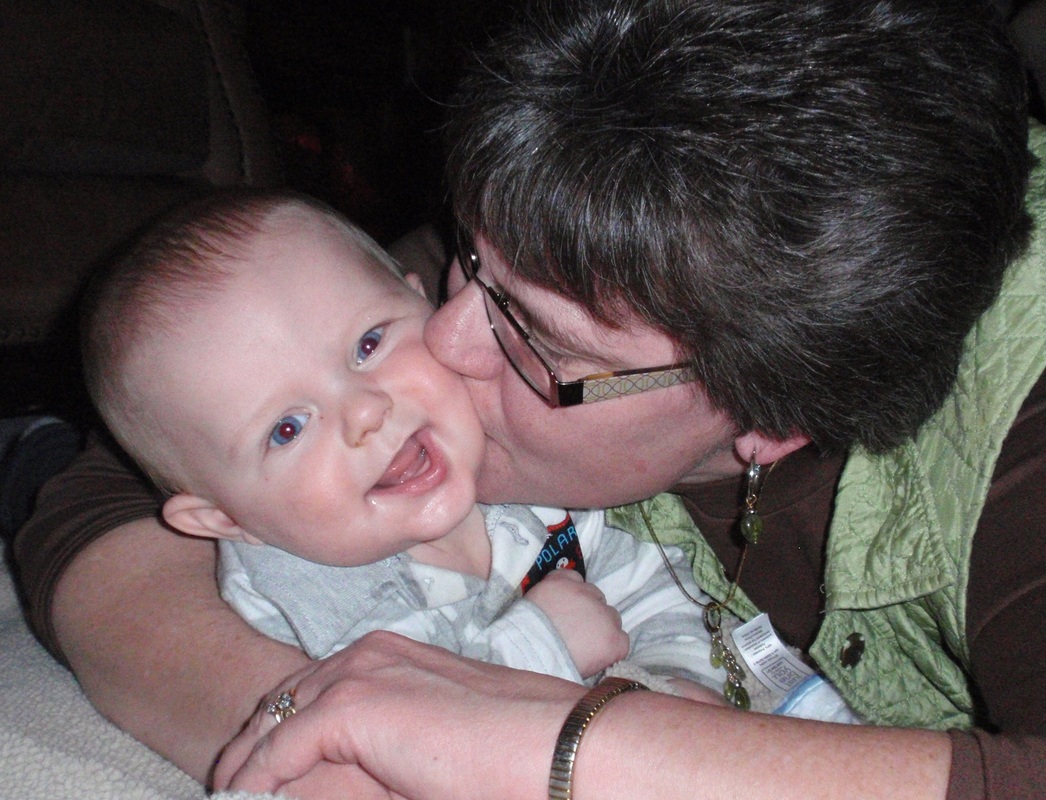Tongue-tie (Ankyloglossia) and a mom's summary after the tongue was released by an ENT: “After the birth of my baby I found breastfeeding to be very painful no matter how the latch was changed. The baby had a tongue-tie and it was recommended that we get it clipped. The procedure was very simple and straight forward. My husband held our son in his lap while the doctor quickly held our son's tongue and clipped the frenulum with one snip. The procedure itself lasted only a second, there were just a few drops of blood, and our baby slept through the entire thing. I breastfed 15 minutes later, and was pain-free. Resolving his tongue tie has made a night-and-day difference in my breastfeeding experience, and I highly recommend the procedure to anyone else whose child has a tongue tie."
1 Comment
This is your new blog post. Click here and start typing, or drag in elements from the top bar.
At the doula meeting Thursday eve we had a short discussion about milk protein in mom’s milk/milk allergy. I came home and did some research. I am providing you with that research below……
Here are parts (quotes) of the article on Kellymom: A small percentage of breastfeeding mothers notice an obvious difference in their baby's behavior and/or health when they eat certain foods. Cow’s milk products are the most common problem foods and the only foods conclusively linked by research to fussiness/gassiness in babies, but some babies do react to other foods. Food sensitivities in breastfed babies are not nearly as common as many breastfeeding mothers have been led to think, however. Food reactions may occur within minutes, but symptoms in breastfed babies more commonly show up 4-24 hours after exposure. Eliminating a food for less than 2-3 weeks may not be effective—cow’s milk protein, for example, can persist in mom’s body for 1½ - 2 weeks, and it may be another 1½ - 2 weeks before the protein is out of baby's system. (Angela note: I know if a baby is given formula that research shows it takes 2-3 weeks to get it out of the gut.) Baby’s symptoms will usually begin to improve within 5-7 days of eliminating a problem food. Your baby may not improve immediately, however, especially if the reaction is to a food that has been a regular part of mom's diet. Some babies seem to feel worse for about a week before symptoms begin to improve. Sometimes it takes several weeks to see an improvement. If you think that your baby may be sensitive to dairy products in your diet, remember that it can take 10 days to 3 weeks to eliminate cow's milk protein from your system--allow a full 2-3 weeks of dairy elimination before evaluating the results. If your baby is only a little sensitive to dairy proteins, you may be able to relieve baby’s symptoms by eliminating only the obvious sources of dairy (milk, cream, yogurt, butter, cheese, sour cream, ice cream, cottage cheese, etc.); you may even be able to eat small amounts of dairy without it affecting baby. Jack Newman’s name was also mentioned at the meeting and I like his work and have heard him speak. I researched a bit to see what his comment was about this subject and he suggested taking the milk products out of the diet for 7-10 days. Lastly this was written by Jan Barger, an IBCLC that is well known and I have heard her speak as well: ….The most likely culprit for your baby is dairy products in your diet — milk, cheese, yogurt, pudding, ice cream, or any food that has milk, milk products, casein, whey, or sodium caseinate in it. Other foods, too — like wheat, corn, fish, eggs, or peanuts — can cause problems. Don't severely limit your diet on the hunch that your baby might have food sensitivity, but if you suspect that a particular food is giving your baby trouble, you could try eliminating it for a week to see what happens. Some foods take longer than a week to completely clear your system, but you should see improvement in your baby's behavior within a few days….. So after all this research I would conclude that an allergy passed on through the mom’s milk can happen in a small percentage of moms/babies. When it is suspected, taking that food out of the diet for 3-4 weeks would be my recommendation. I would also direct mom to the 3 websites I looked at and/or would type something like this up for her. I hope you find this information helpful and I look forward to working with you in the future! Angela E. Swieter, RN, BSN, IBCLC, RLC, ICPE Bidding for the LLL Annual Fall Fundraiser begins Sept. 10 at 9 am! Just click on any item, and the scroll through the images to see what's up for auction. Put your bid in the comment section. Please feel free to invite family and friends. You don't have to be a nursing mama to bid on items!
Basking Babies has donated the prize of a gift certificate for three 15 minute phone calls (see the gift certificate tab for more information on this) SO.. what is it like to be a grandma?...let me tell you..... : ) Basking in love with a grandbaby!6/19/2011 WOW! I cannot describe the thrill the last year has been for me! All 3 of my children having babies! (see grandbabies section on this website) Here is part of what I shared for my first grandchild's baby book .......It was awesome to be their extra labor support person and after you read my shortened version of the story, feel free to share any of your experiences on this blog.....I would enjoy reading them and so would others!!! ............
..............Nana Angela........ Mommy took her last final for nursing school, then went to her weekly OB Dr check. She soon thereafter went into labor with contractions coming and going, but not worth timing until 6 PM. Around 11:30 PM I was called by your daddy to come to their house to help support the labor. Her contractions were 4 minutes apart lasting about 1 minute for 2 hours before we left for the hospital. We arrived at the hospital around 2 AM. The contractions were bearable and breathing the slow deep chest method seemed to work. The early morning hours found us in and out of the tub, walking in the halls, on the ball bouncing, and in the hands and knees position…changing these activities about every 20 minutes. It took a long time (we thought) for you to decide to make your appearance. When mommy was finally able to begin birthing you, we were crying with excitement!! “We’re gonna have a baby,” I kept saying!! (this was now about 5 PM) Your mom was able to watch the birth (using the mirror) and feel your head during crowning. The Dr had been told to not identify whether you were a girl or a boy and when you were born I hollered, “We have a baby.” The Dr held you up and mommy excitedly announced to the room while crying tears of joy (daddy too) “It’s a girl.” Papa was able to be there in the room but stood back where he could not see much (to give mommy her privacy) but then was right up beside you and mommy and daddy once you were on her chest. I know he felt very blessed by being allowed to be part of this experience-our first grandchild and our own little baby princess (your mommy) giving birth to you!! You nursed within a half hour after birth, after skin to skin time, and then again in an hour and again in 2 hours. We are proud of your mommy and daddy and you! We love you! Nana The question came to me this week on whether crying was good for a baby's lungs. I am doing some research so that I give you evidenced-based information. But has anyone else heard this?
Here is a direct quote from askdrsears website: Crying isn't "good for baby's lungs." One of the most ridiculous pieces of medical folklore is the dictum: "Let baby cry, it's good for his lungs." In the late 1970's, research showed that babies who were left to cry had heart rates that reached worrisome levels, and lowered oxygen levels in their blood. When these infants' cries were soothed, their cardiovascular system rapidly returned to normal, showing how quickly babies recognize the status of well being on a physiologic level. When a baby's cries are not soothed, he remains in physiologic as well as psychological distress. (end of quote) |
AuthorAngela, first a wife, then a mom, and now a grandma ("Nana"), whose professional career deals with babies and parents. Owner of Basking Babies. Archives
January 2013
Categories |
Proudly powered by Weebly



 RSS Feed
RSS Feed
